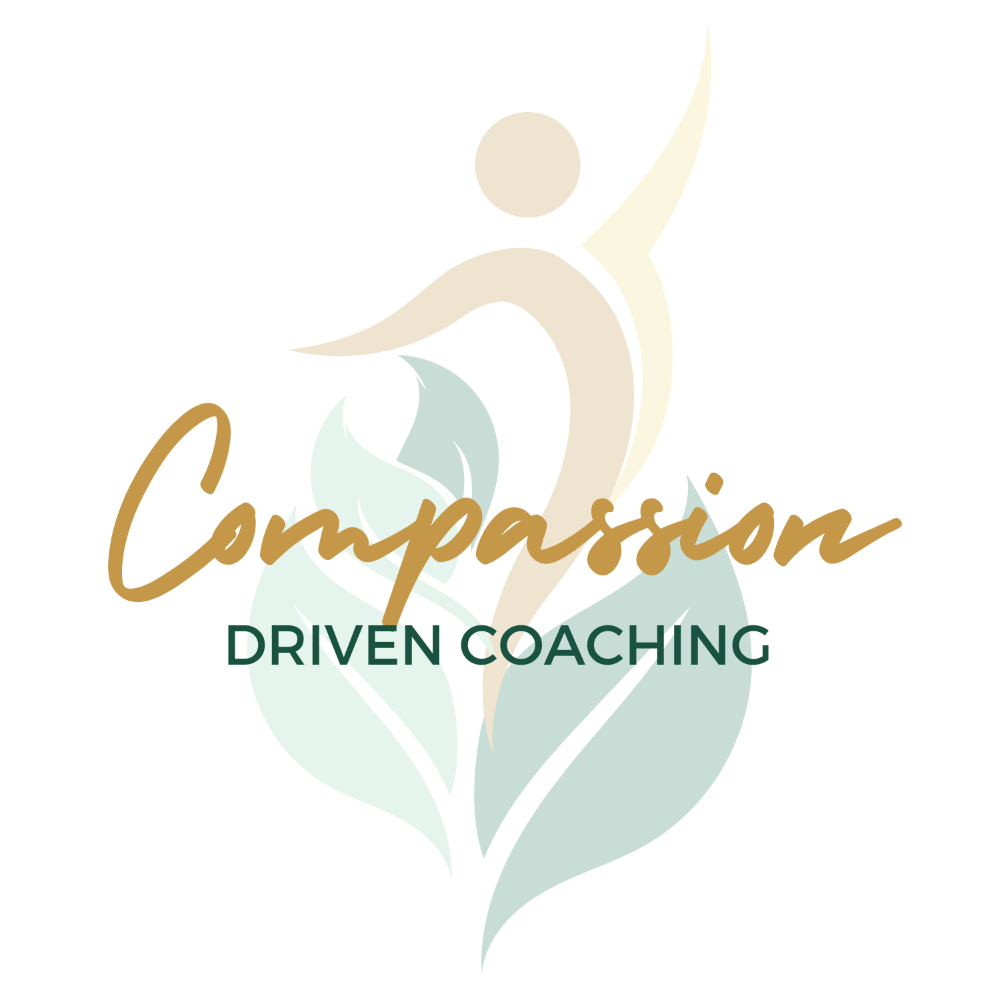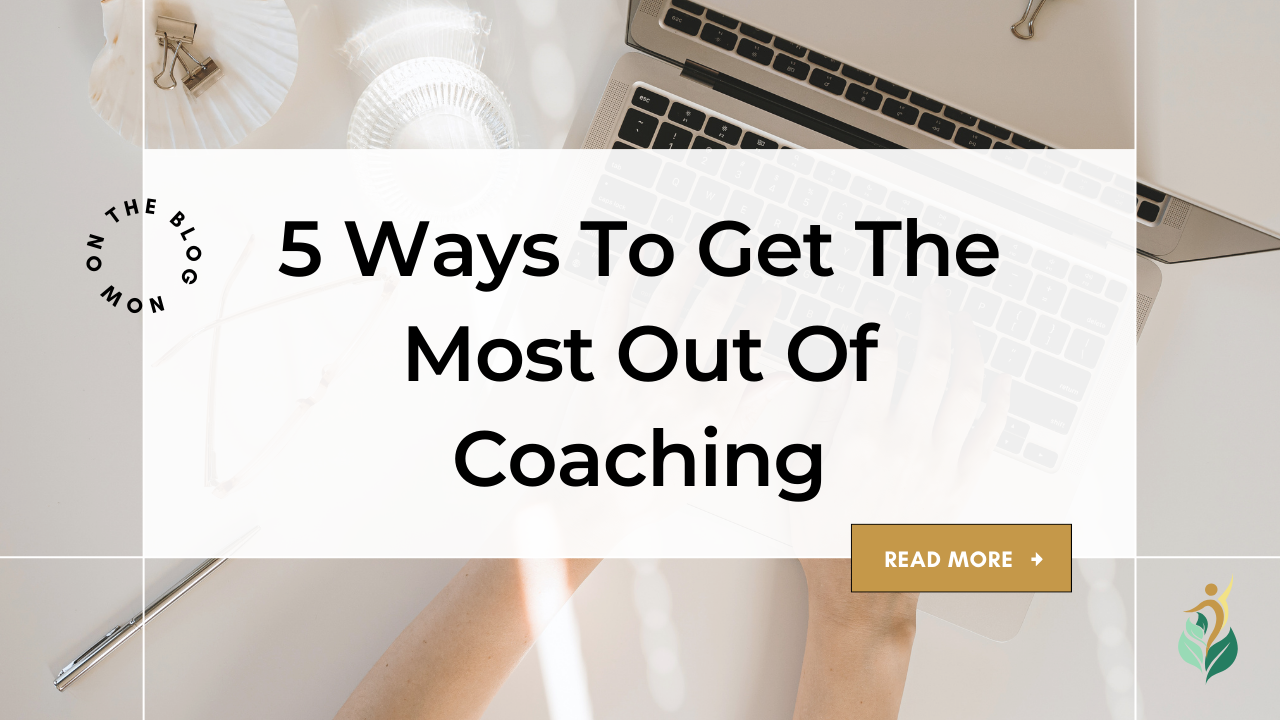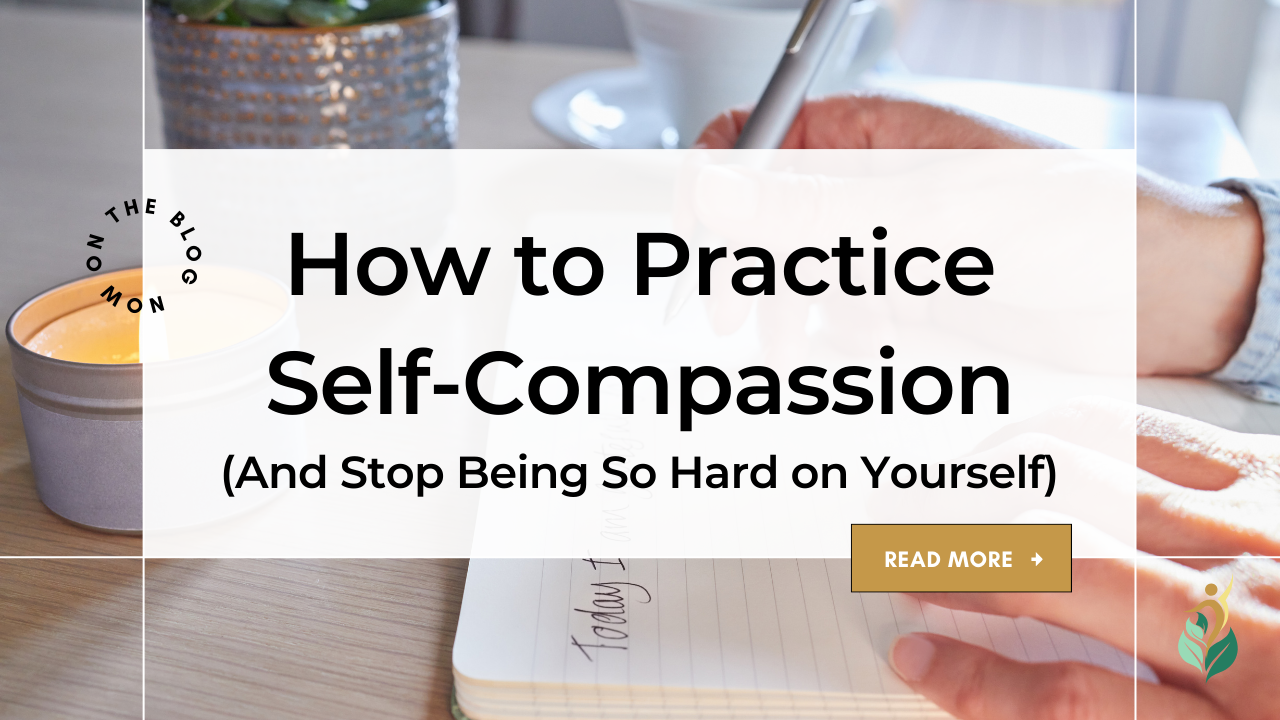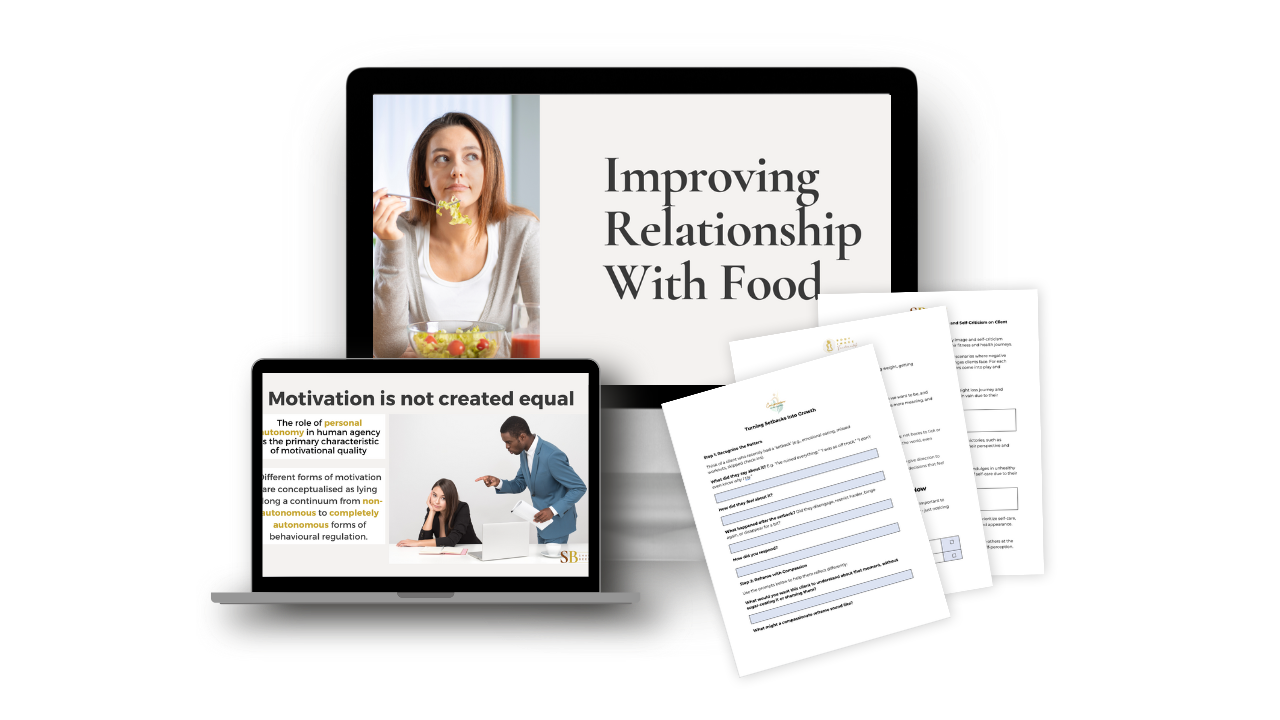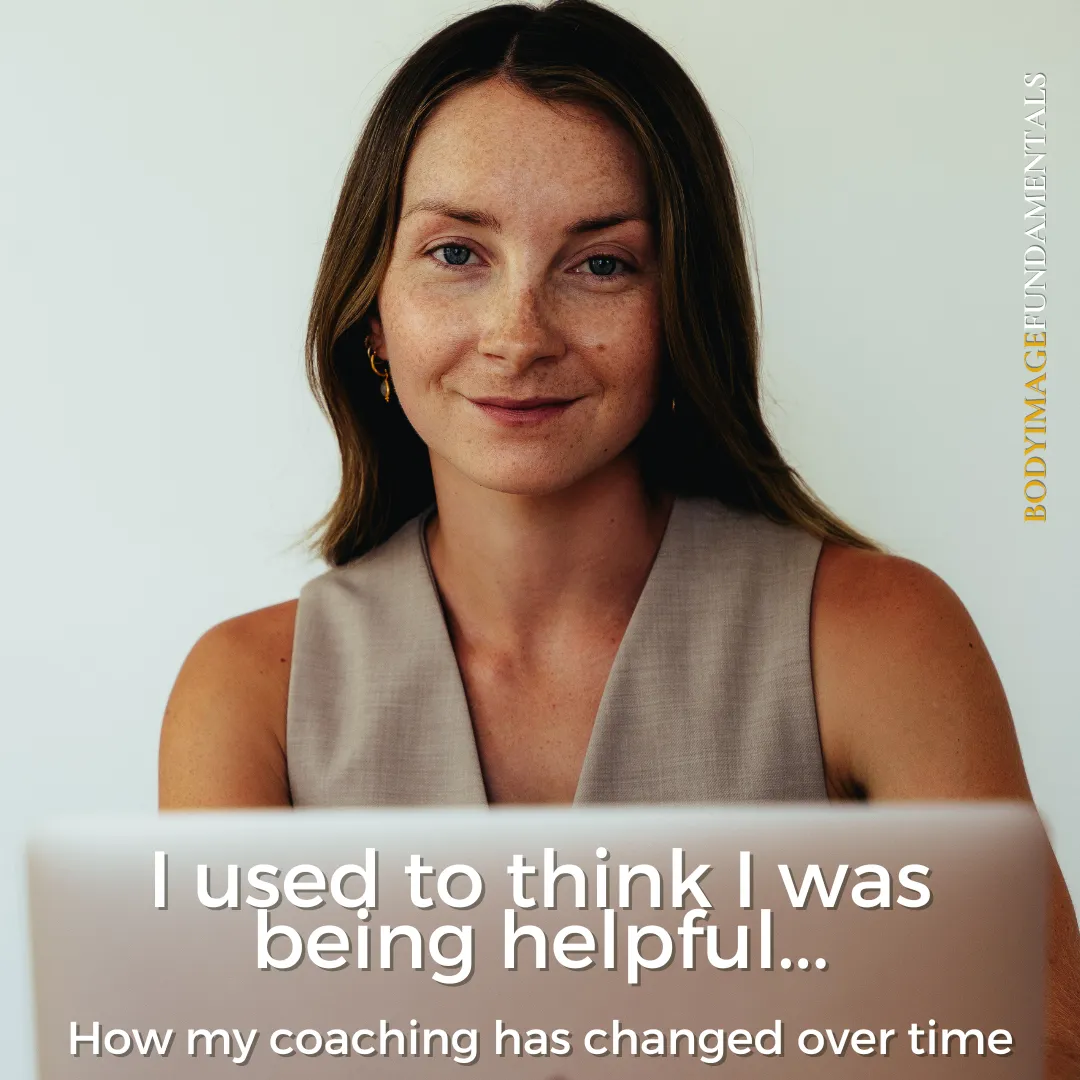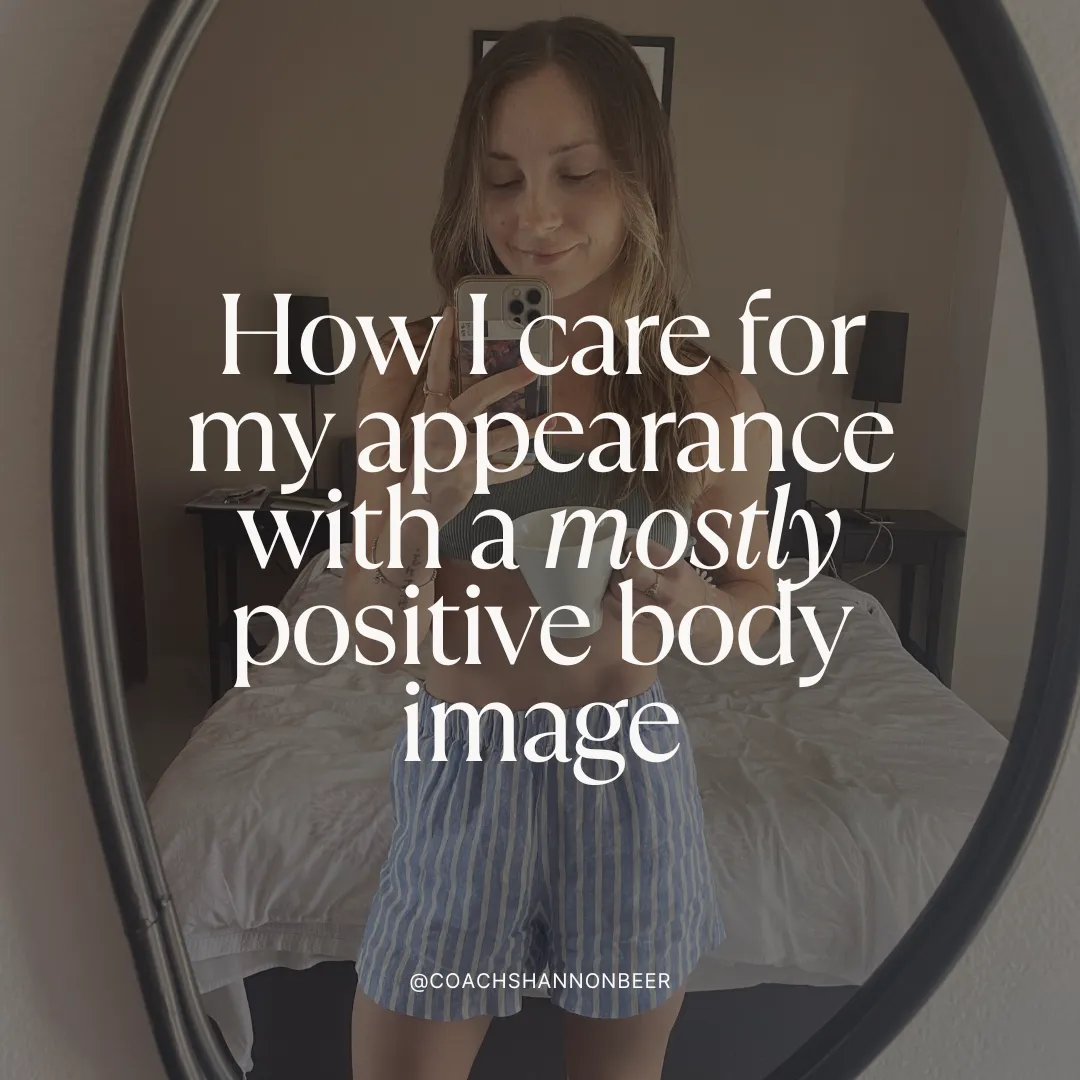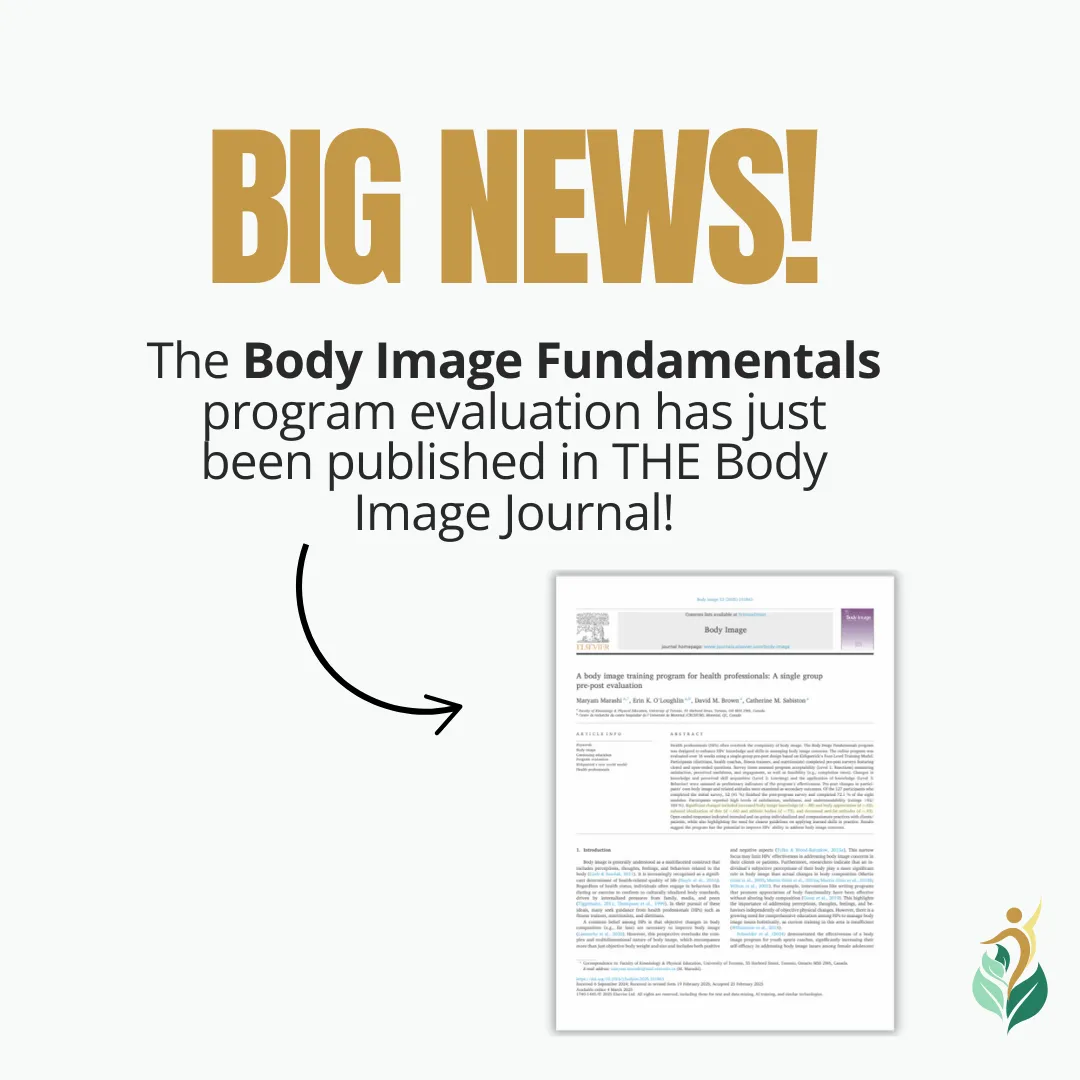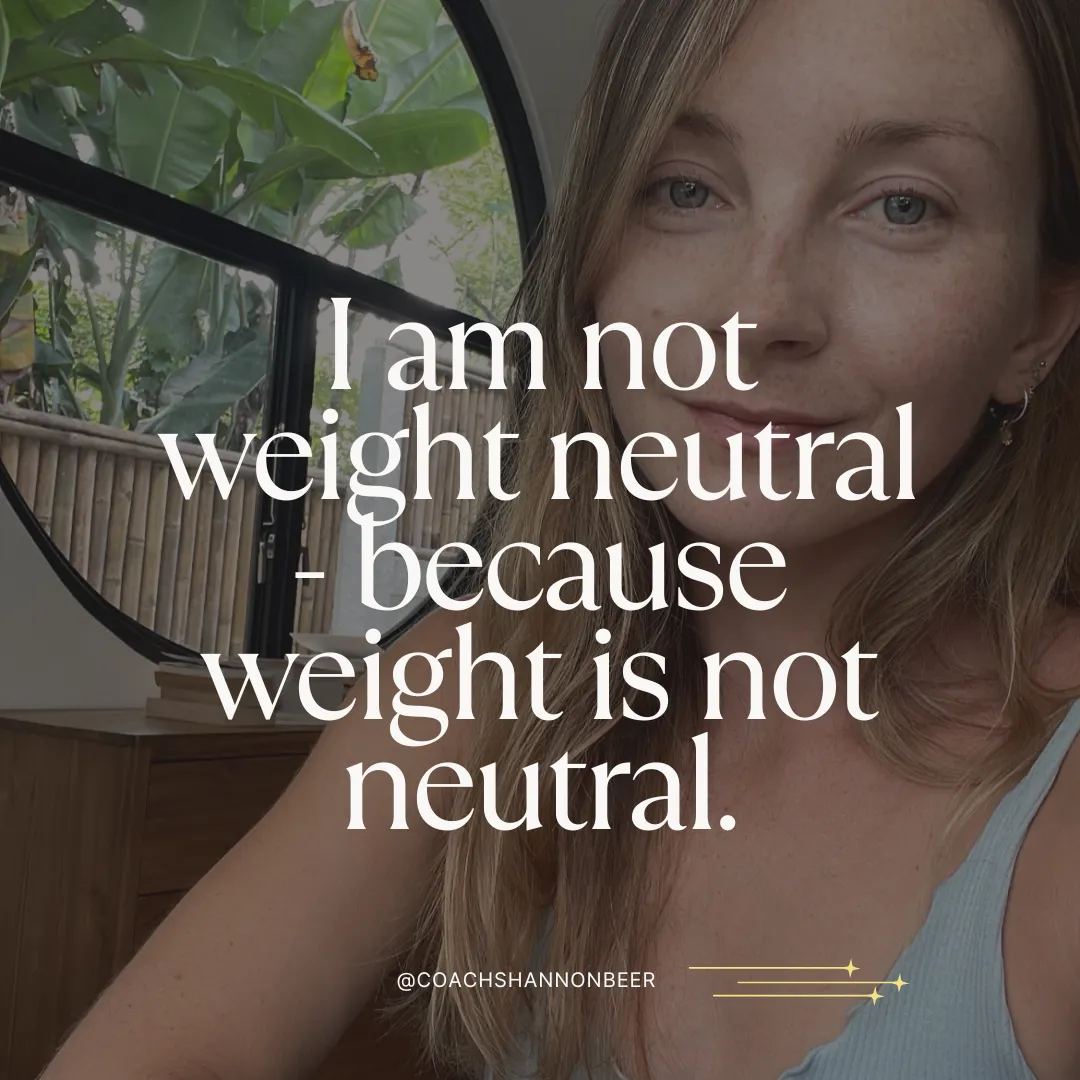Practical Tips to Improve Body Image and Reclaim Your Confidence
Jul 19, 2023
How To Improve Your Body Image
Do you find yourself constantly questioning, "Why do I feel so ugly?" or battling with negative thoughts about your body? You are not alone; it is estimated that roughly two thirds of adults suffer from negative body image [1]. In today's society, we are constantly bombarded with images of what we should look like and how we should present ourselves. It's not a surprise that body dissatisfaction has become the norm [2].
The good news is that there are practical interventions out there to improve your body image [3]. With the right mindset and practical tips, you can learn to respect and appreciate your body for what it is, and reclaim your self-confidence in the process. In this article, we will explore empowering, evidence-based strategies to cultivate a healthy body image. Whether you're struggling with negative self-talk, constant self-consciousness, or just need some inspiration to boost your confidence, these tips are sure to help you feel more comfortable in your body and confident in who you are.
How To Spot A Negative Body Image
Negative body image can have a profound impact on our mental and emotional health. It can lead to a range of issues, including low self-esteem, anxiety, depression and disordered eating [4]. When we have a negative body image, we tend to focus on our flaws and imperfections, which can lead to a distorted perception of our bodies. Negative body image can also impact our relationships with others. When we feel insecure about our appearance, we may avoid social situations or become overly self-conscious around others. This can lead to feelings of isolation, loneliness, and even shame [5].
Here are 6 key components of a negative body image:
- Body dissatisfaction: general discontent with your body or its parts.
- Body preoccupation: Obsessions about your appearance and how to change it.
- Fear of weight gain: Irrational fear of gaining fat or seeing the number on the scale increase.
- Social comparisons: Regularly evaluating oneself against another person.
- Body checking: Safety behaviours designed to calm concerns we have about our appearance, such as self-weighing.
- Body image avoidance: Avoiding situations that will draw our attention to how we look.
It's essential to recognise the signs of negative body image and acknowledge the impact that has on your day to day life. This self-awareness can help you find the motivation to take steps to address it. With the right mindset and practical tips, we can enhance our body image and reclaim our self-confidence.

The Importance of Self-Worth
Self-worth refers to the value we place on ourselves as individuals. It's about recognising our inherent worth and treating ourselves with kindness, compassion, and respect. When we have a positive self-worth, we feel confident and capable, allowing us to pursue our goals and dreams.
However, negative body image can erode our self-worth, causing us to doubt ourselves and our abilities. It's essential to recognise the connection between body image and self-worth and work towards improving both [6]. When we have a positive body image, it can enhance our sense of self-worth, leading to greater confidence and self-belief.
Practical Tips for Enhancing Body Image
Improving our body image requires a shift in mindset and daily habits. Here are some practical tips to help enhance your body image:
- Appreciate Your Body
So often we are caught up in how we look that we forget to think about all of the things our bodies can do. I don't just mean lifting heavy weights or performing well at the gym, although that's great too. Our bodies perform so many functions for us. Appreciating, respecting and honouring your body for what it is capable of doing can help you to feel more satisfied with your body and move away from worrying too much about your appearance [7].
This includes functions related to:
- Your senses (seeing, feeling, pleasure)
- Physical activity and movement (going for a walk, dancing, lifting)
- Health (healing, digesting)
- Creative endeavours (reading, drawing, writing)
- Self-care (eating, sleeping, resting)
- Communication and connection (hugging, holding hands, laughing, kissing)
Take some inspiration from my EMPOWER Coaching clients, who appreciate things like:
- Hiking, surfing, healing from injury
- Giving birth and cuddling loved ones
- The feeling after a good conversation
- Reading, learning and gaining new knowledge
To take it one step further, ask yourself ‘Why are these functions important to me?’. It’s easy to forget that our bodies are unique and do so many things for us that really enrich our lives.
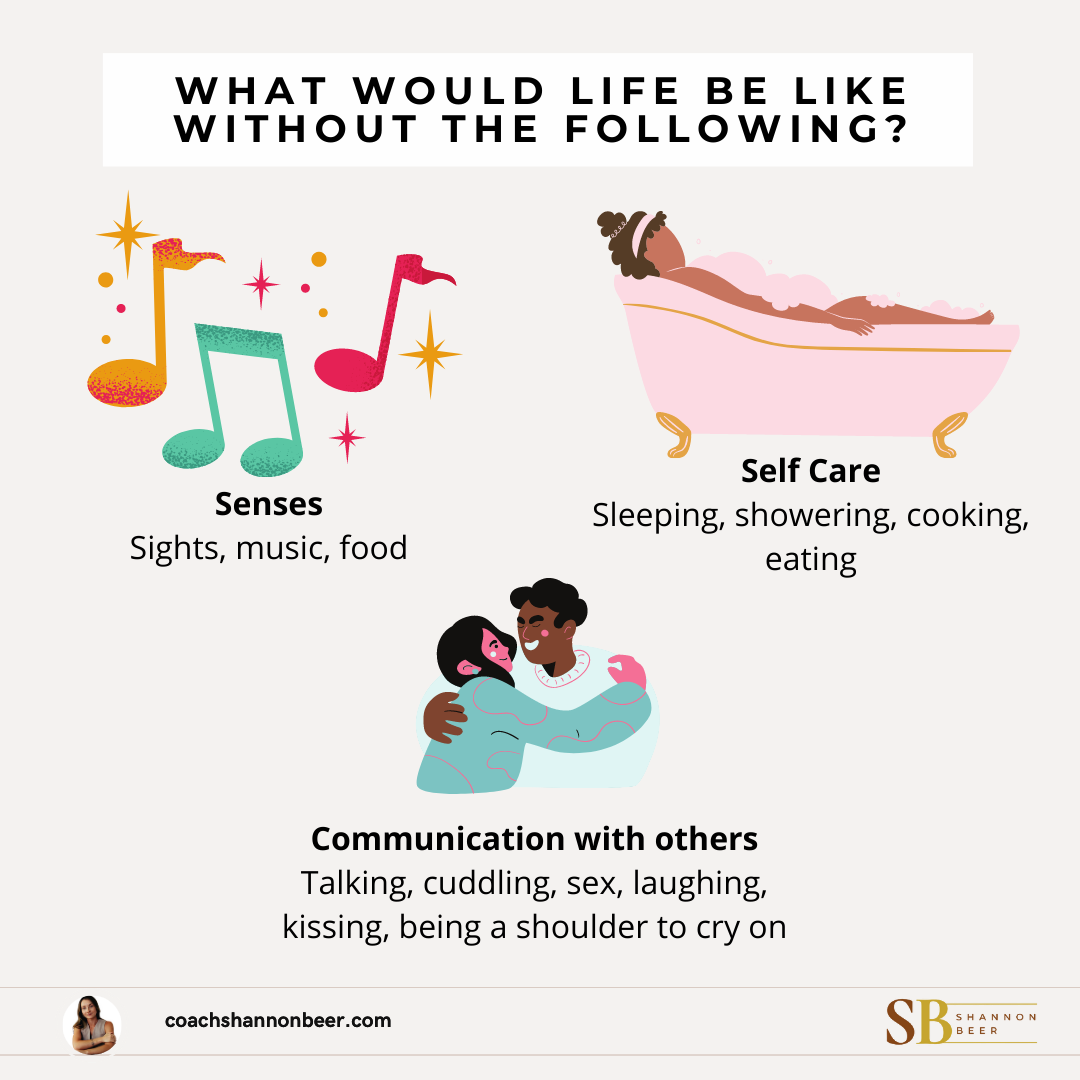
- Focus on Your Values
Remember that you are a human being, not just a physical ornament. Write down a list of your strengths and values, whether it's your kindness, intelligence, or sense of humour. Remind yourself of these values daily, why these characteristics are important to you and what actions you engage in to truly embody these values. This can help you to resist self-objectification and placing too much importance on how you look. If you're not sure what your values are, read this article to help you clarify them.
- Resist The Urge To Diet
When you don't like how you look, it's common to experience the urge to diet. Not only does restricting ourselves increase our preoccupation with food, but it often backfires and we end up eating more. Cognitive restraint (focusing on controlling our weight) does not correlate with actual calorie intake [8]. On the other hand, intuitive styles of eating are associated with longer term healthier dietary patterns [9]. You can practise Intuitive Eating by respecting your body and making food choices that honour your health but also bring satisfaction [10]. It also means trusting your body and relying mostly on physiological hunger and satiety cues rather than eating in response to emotions or following strict food rules.
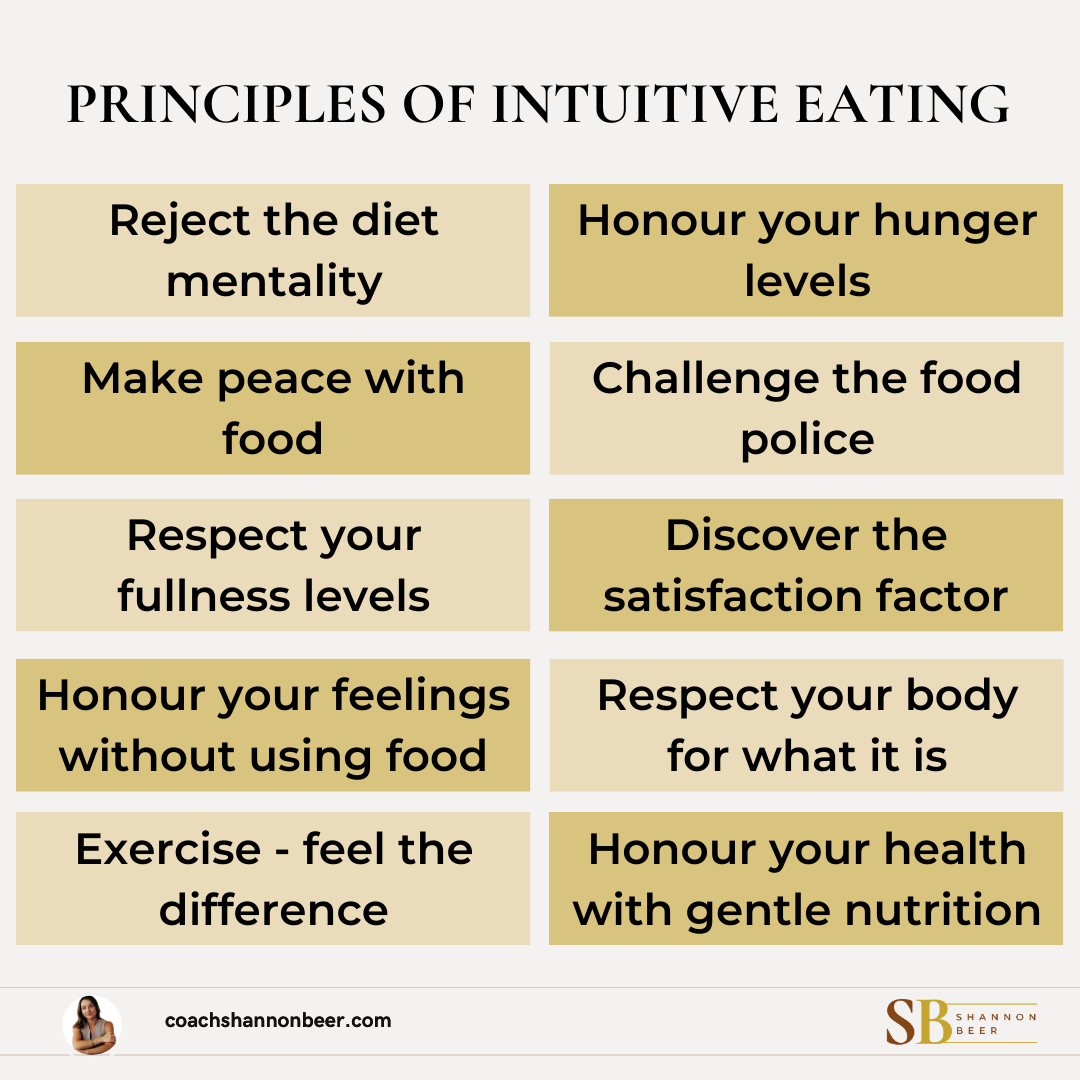
- Reduce Your Body Checking
Constantly scrutinising and evaluating our bodies can fuel negative thoughts and intensify our feelings of dissatisfaction [11]. There's nothing wrong with checking yourself every now and then but there's a big difference between simply fixing your appearance and constantly feeling compelled to inspect and pick at your body. We tend to check our bodies to reassure ourselves we still look good, to serve as motivation to change our bodies or to reduce uncomfortable emotions. In reality this just serves to make us more insecure, self-conscious and anxious, which then fuels more checking behaviours. Ultimately these body checking behaviours keep us stuck in a negative body image as they serve to reinforce the idea that it's important to tightly control how we look. Reducing these behaviours is a way of reminding yourself that there's more important things in life.
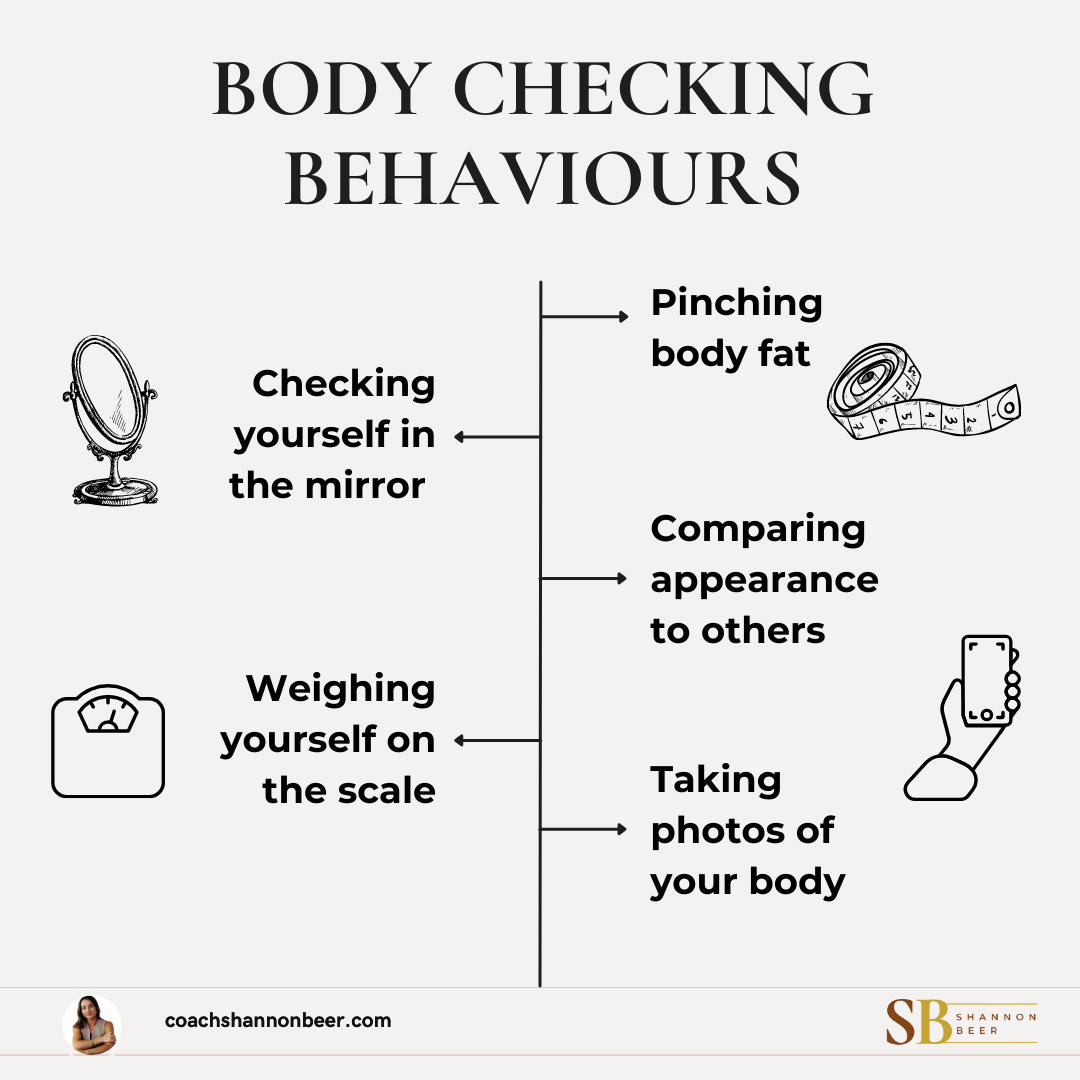
- Surround Yourself with Supportive Influences
We are constantly surrounded by pressures to change how we look. Sometimes our own social circles are a source of this pressure too. If our friends and family are making comments on our bodies or often talking negatively about their own appearance, or engaging in frequent diet talk, that is likely to have a negative impact on our own body image [12].
On the other hand, when we perceive that our bodies are accepted by others, we are able to value our bodies for more than our appearance and feel more appreciative about our bodies [13]. Surrounding yourself with positive influences can have a significant impact on your body image [14]. Seek out friends and family who support you, and be mindful of those who constantly talk about dieting. This extends to our social media feeds too [15]. Follow social media accounts that promote body diversity and self compassion, and unfollow those that perpetuate unrealistic beauty standards [16].
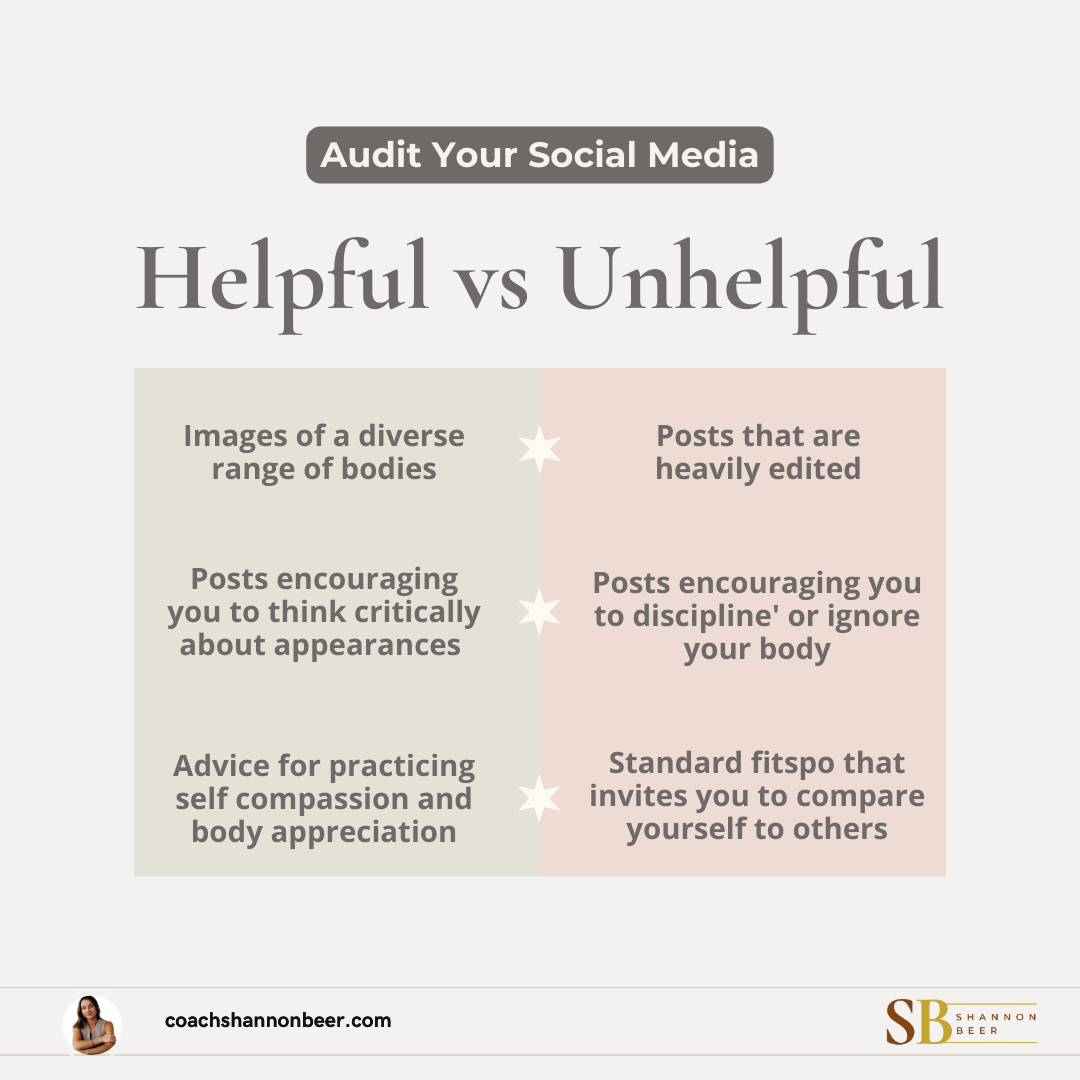
Seeking Support for Body Image Issues
If you're struggling with negative body image, it can be helpful to get support from a trained professional.
Here are some signs that you may benefit from seeking support:
- You feel like your body needs to change before you can be happier within yourself
- You often think about food, tightly control what you eat and often feel out of control around food
- You often avoid doing things that might draw attention to how you look
- Your negative thoughts about your body impact your daily life and relationships
It can be easy to convince yourself that things aren’t that bad, or you can handle it on your own, but the reality is that body image concerns can have a large impact on your quality of life and won’t go away on their own.
How Coaching Can Support You
Improving our body image is an ongoing process that requires a shift in mindset and the way we treat ourselves. The tips in this article are a great place to start but a positive body image is best developed in the context of a support environment which can facilitate many of the strengths you are seeking to develop (especially body appreciation and self compassion). These strengths can be difficult in isolation, especially if you’ve struggled to shift your perspective for some time.
If you want to be at peace with your body and more confident in your ability to make balanced food choices, check out the options we have for you at EMPOWER Coaching.
References
[1] Algars, M., Santtila, P., Varjonen, M., Witting, K., Johansson, A., Jern, P., et al. (2009). The adult body: How age, gender, and body mass index are related to body image. Journal of Aging and Health, 21, 1112–1132.
[2] Bucchianeri M, Neumark-Sztainer D. Body dissatisfaction: An overlooked public health concern. J Public Ment Health. 2014;13:64–9
[3] Alleva, J. M., Sheeran, P., Webb, T. L., Martijn, C., & Miles, E. (2015). A Meta-Analytic Review of Stand-Alone Interventions to Improve Body Image. PloS one, 10(9), e0139177. https://doi.org/10.1371/journal.pone.0139177
[4] Sharpe, H., Griffiths, S., Choo, T. H., Eisenberg, M. E., Mitchison, D., Wall, M., & Neumark-Sztainer, D. (2018). The International journal of eating disorders, 51(10), 1168–1175. https://doi.org/10.1002/eat.22936
[5] Duarte, C., Pinto-Gouveia, J., Ferreira, C., & Batista, D. (2015). Body Image as a Source of Shame: A New Measure for the Assessment of the Multifaceted Nature of Body Image Shame. Clinical psychology & psychotherapy, 22(6), 656–666. https://doi.org/10.1002/cpp.1925
[6] Mellor, D., Fuller-Tyszkiewicz, M., McCabe, M.P. et al. Body Image and Self-Esteem Across Age and Gender: A Short-Term Longitudinal Study. Sex Roles 63, 672–681 (2010). https://doi.org/10.1007/s11199-010-9813-3
[7] Alleva, J. M., Martijn, C., Van Breukelen, G. J., Jansen, A., & Karos, K. (2015). Expand Your Horizon: A programme that improves body image and reduces self-objectification by training women to focus on body functionality. Body image, 15, 81–89. https://doi.org/10.1016/j.bodyim.2015.07.001
[8] Stice, E., Sysko, R., Roberto, C. A., & Allison, S. (2010). Are dietary restraint scales valid measures of dietary restriction? Additional objective behavioral and biological data suggest not. Appetite, 54(2), 331–339. https://doi.org/10.1016/j.appet.2009.12.009
[9] Hazzard, V. M., Telke, S. E., Simone, M., Anderson, L. M., Larson, N. I., & Neumark-Sztainer, D. (2021). Intuitive eating longitudinally predicts better psychological health and lower use of disordered eating behaviors: findings from EAT 2010-2018. Eating and weight disorders : EWD, 26(1), 287–294. https://doi.org/10.1007/s40519-020-00852-4
[10] Tribole E, Resch E (1995) Intuitive Eating: A Recovery Book for the Chronic Dieter. St. Martin’s Press, New York, NY
[11] Shafran, R., Fairburn, C. G., Robinson, P., & Lask, B. (2004). Body checking and its avoidance in eating disorders. The International journal of eating disorders, 35(1), 93–101. https://doi.org/10.1002/eat.10228
[12] C. L. Augustus-Horvath and T. L. Tylka. The acceptance model of intuitive eating: A comparison of women in emerging adulthood, early adulthood, and middle adulthood. J Couns Psych 2011; 58: 110–25.
[13] Waring, S. V., & Kelly, A. C. (2020). Relational body image: Preliminary evidence that body image varies within a person from one specific relationship to another. Body image, 34, 221–232. https://doi.org/10.1016/j.bodyim.2020.06.006
[14] Fardouly, J., & Vartanian, L. R. (2016). Social media and body image concerns: Current research and future directions. Current Opinion in Psychology, 9, 1–5. https://doi.org/10.1016/j.copsyc.2015.09.005
[15] Cohen, R., Fardouly, J., Newton-John, T., & Slater, A. (2019). #BoPo on Instagram: An experimental investigation of the effects of viewing body positive content on young women’s mood and body image. New Media & Society, 21(7), 1546–1564. https://doi.org/10.1177/1461444819826530

Stuck In All Or Nothing Mode?
Your mind isn’t broken; it’s just running on autopilot.
Take the free Emotion System Audit and learn what's driving your patterns - and what to do when you feel overwhelmed or out of control.
